Real Estate Podcast
Looking to enhance your real estate marketing with a Real Estate Podcast? Listen to our real estate podcast where we talk about how to get started with your own real estate podcast, what equipment and software you will need, how to syndicate and distribute your real estate podcast and even provide some thoughts on good topics and, hopefully, make you the top real estate podcast in your area.
Takeaways for Real Estate Podcast
- GET STARTED! The number one takeaway is that getting started is the most important thing to do. Don’t wait till you have the perfect equipment, software, location or topic. Just start and the rest will follow.
- Equipment doesn’t have to be expensive While podcast studios will have the expensive microphones, recorders, mixers and software, you don’t need them. You can literally get started with your phone and headset. Then as you progress and gain audience you can upgrade.
- Be the expert The more you demonstrate that you have knowledge and expertise the greater your authority will be. Showcase local shops, restaurants and events. Talk about the local market and why working with you is important. Demonstrate your knowledge of real estate law. This will establish you as the go to person for all real estate needs.
Real Estate Podcast Show Notes
- Why podcast [1:20]
- Getting Started [4:00]
- Equipment [6:20]
- Software [12:40]
- Syndication/Distribution [15:20]
- Podcast Topics [18:15]
Real Estate Podcast Links
Real Estate Podcast Transcription
Adam Small: Good afternoon. This is Adam Small with Agent Sauce and this is the Real Estate Marketing Podcast. With me today Doug Karr from Dk New Media.
Douglas Karr: Hello Sir.
Adam Small: And Austin Day.
Austin Day: Hey. How’s it going? Otherwise known as Intern Austin.
Adam Small: How are you guys doing today?
Douglas Karr: Fantastic.
Austin Day: Not too bad.
Adam Small: Great. One of the things I want to talk about today was real estate podcasting. Kind of talk about the technology behind it as well as maybe some tips on some topics. How to even get it distributed. Sound good?
Douglas Karr: I’m ready.
Adam Small: Alright. Doug you’ve been podcasting the longest of all the people here. Tell us a little bit about when you started podcasting.
Douglas Karr: About 10 years ago, I guess it was. I started a podcast. Just a bunch of guys sitting around a microphone and we would talk shop.
Adam Small: Okay.
Douglas Karr: It was a terrible show. It was long.
Adam Small: I remember those. They were a lot of fun.
Douglas Karr: They were fun.
Adam Small: For us anyway.
Douglas Karr: Over time we just got better and better at it.
Adam Small: Right. Why did you start podcasting?
Douglas Karr: Within marketing technology, one I have an agency so I need to be able to explain the technologies to my clients. It’s always good for me anything new I start up just instantly to kind of figure it out and see whether it will work or not.
The second reason was, whenever anything is new, your opportunity to capture a big market share is pretty good. Since nobody else was podcasting where I was at, it was like I might as well jump on board and I was talking about marketing technology.
Adam Small: Right.
Douglas Karr: By getting in early I accumulated a lot of listeners fast. Those were the two main reasons.
Adam Small: Right. Okay. Doug, of those reasons, which one applies to why a realtor might want to start real estate podcasting?
Douglas Karr: I think for real estate agents … I haven’t looked and searched but real estate agents are hyper local. Anything that they can make a difference from a marketing standpoint locally, is probably a really good thing. I’m guessing … We live in Indianapolis. I’m guessing the number of real estate agents that are real estate podcasting in Indianapolis may be not be a large number.
If you want to differentiate yourself from your competitors, starting a real estate podcast about the region and selling homes and everything might be a really great way to differentiate yourself and jump up to the top of a lot of peoples lists.
Adam Small: Okay, so the concept of what you were kind of saying number one reason … Or I think it was your number two reason actually, that there weren’t a lot of people doing it.
Douglas Karr: Yeah.
Adam Small: So you had an opportunity to kind of step up and take lead in the field. That kind of still applies for local real estate agents right?
Douglas Karr: Oh yeah.
Adam Small: Because it is in fact all about local as opposed to trying to create a national presence and that sort of thing right?
Douglas Karr: Yeah.
Adam Small: Great. Austin what about you? How long have you been podcasting?
Austin Day: I plan on starting a podcast here soon. I’ve been listening to podcasts for about a year and a half. Really just started thinking about starting a podcast gearing towards my kind of audience. People that are like me. Millennials, people that are in college.
Me and my friend are still trying to decide plan all of the kinks out of it. We’re going towards just to help out people around our age. Really just to give people tips on how to get through their college experience a lot better and get the most out of it.
Adam Small: So your podcast really isn’t very local centric. It could very well be a nationwide type of presence. Your whole point and purpose is to target the millennial audience if you will. Younger audience and kind of help them, give them some advice and move forward right?
Austin Day: Yeah, exactly. A big thing on it being national, we didn’t want to make it too local. Especially in our name. We felt like it was gonna kind of limit our audience.
Adam Small: Okay, okay. That’s good. We’ve got a seasoned podcaster and a brand new podcaster starting up here. Doug advice for people that are looking to start a real estate podcast?
Douglas Karr: The easiest thing to do is just start. You can start out literally with an app on your phone. There’s a bunch of them around. Anchor is one that’s popped up quickly and is taking over. Real Estate agents are on the road all the time. I think most of them drive pretty nice cars so they’ve probably got a good sound system and mic system.
Adam Small: Right.
Douglas Karr: That’s connected to their phone. A real estate agent could literally sit there on their way to work or on the way to their first showing and do maybe a 5, 10 minute real estate podcast and distribute it out to social media as a start.
Adam Small: Right, right.
Douglas Karr: That’s the thing, you get better over time. When you first start podcasting you hear, especially when you’re publishing and editing your own you hear all of the mistakes that you make. For me it was, I would say “right” all the time. “Right?” “Right?” “Right?”
Adam Small: Right? Yeah, yeah. You know right? I know right?
Douglas Karr: Yeah.
Adam Small: I catch my son all time saying, “I know right.”
Douglas Karr: You get those nuances and you become aware. It’s a really good practice thing too just from a public speaking standpoint, it’s good. As you go, you get better and better at remember how to do your intro and outro. All the pieces of it, it becomes more and more in control.
Adam Small: Exactly, that’s what I was gonna say. More natural, more habitual, more relaxed and conversational [crosstalk 00:05:44]
Douglas Karr: Yeah. And the good thing is when you first start, nobodies listening to it anyways.
Adam Small: When they go back and listen to them because they found you later on they go, “What is up with this?”
Douglas Karr: Ours are up there and their terrible the first ones but it’s good to see the transition and everything that’s happened since then to make it better.
Adam Small: Right. So your number one piece of advice is just get started.
Douglas Karr: Yeah.
Adam Small: Right. That’s good.
Douglas Karr: Nowadays for someone literally on your smart phone, you have no excuse.
Adam Small: Right. Literally it’s entirely possible. That actually kind of leads into the next thing I was gonna ask about which was the technology. It can be pretty daunting, especially as I sit here and look around at the studio here in DK New Media.
You’ve got this massive 16 input device over there. It turns on by talking to the Amazon Echo. Hooked up to computers and all that stuff. Really and truly you don’t need the top of the line microphones, equipment and all that.
Douglas Karr: Not anymore.
Adam Small: To get started from technology perspective, like you said, you can literally use your phone.
Douglas Karr: Yeah. We have a portable set up. It’s a Shure microphone MV88 that’s just for I Phone.
Adam Small: Right.
Douglas Karr: But it’s beautiful, what’s called a condenser microphone that when I do a recording on that in a quiet area where there’s not a lot of echo or bounce back-
Adam Small: Right.
Douglas Karr: It records absolutely beautiful.
Adam Small: Right.
Douglas Karr: I think that’s a 100 dollar microphone or something.
Adam Small: Mm-hmm (affirmative)-
Douglas Karr: The reason why we have this get up here is obviously we have guests that come in. We do voiceover stuff. We have people on remote that are on the podcast so we can do video and remote with them.
There’s a lot of technologies added that we’re doing there and we’re gonna add real time social to it and video.
Adam Small: Right.
Douglas Karr: That’s why we have a studio but a studio isn’t necessary.
Adam Small: Kind of along those lines as well, you don’t want to invest thousands, and thousands, and thousands of dollars in something that you’re just starting up unless you’re seriously committed to it.
Douglas Karr: Right.
Adam Small: Podcasting … Real Estate agents are probably some of the busiest people I’ve ever met. Real Estate Podcasting is a commitment in time. Your example of doing it while you’re driving down the roads a great example of multi tasking.
Along those lines, the investment and all of this equipment real high end and all that is something that a lot of people just A. Couldn’t do and B. Wouldn’t want to do until they really got a handle on it.
Douglas Karr: Yeah.
Adam Small: And figured out if they wanted to continue with this sort of thing right?
Douglas Karr: Yeah, in our region there’s four podcast studios too. You can rent from us or any of the other ones too. You don’t have to go spend that money either. You can get someone to help you as well.
Adam Small: Exactly. Get your feet wet. Either use some of the lower end technology.
Douglas Karr: Yep.
Adam Small: Or technology available is really what I should say because the technology available today is much, much better than it was in the past.
Douglas Karr: Yeah.
Adam Small: Get your feet wet and break into it. From there, then graduate up. Say, I’d like to work on that audio a little bit. I’d like to get a little better sound. Maybe reduce the hiss in the background the sort of thing right?
Douglas Karr: Yep.
Adam Small: Technology is really no excuse to delay getting started.
Douglas Karr: No, And for intros and outros those are your introduction to your audio and the exit of your audio, you can get people on Fiverr or whatever to do those voiceovers and music.
Adam Small: Right.
Douglas Karr: And everything. It’s become incredibly affordable to publish a really well produced real estate podcast.
Adam Small: Podcast. Yeah. Austin since you guys are starting, what have you looked at in the way of equipment to help you guys get started and get rolling?
Austin Day: Just going hand in hand with what you guys have been saying. In my research on how to start a podcast, the biggest thing that’s come up is just to focus on content and not to focus on the technical side.
I think that’s huge. If you’ve got a good message people want to hear then they’re gonna be alright. As long as your sound quality is okay. You don’t have to spend a ton of money just to have a decent sound quality.
Adam Small: Right. I think sound quality is really key. Even if you’re watching a video, if the sound is stuttering and skipping and all that stuff, then you’re gonna skip out of that video. You’re done. But if the sound is … What’s the right word? Hearable? Listenable? Audible? I don’t know what the right word is because there’s a difference between audible and actually legible.
Douglas Karr: It’s just a matter of good quality.
Adam Small: Right.
Douglas Karr: You don’t want a lot of background noise. Unless the background noise is consistent. Like if you’re at a conference or something like that.
Adam Small: Right, right, right. You don’t want doors slamming or shutting or anything in the background do we?
Douglas Karr: Yeah.
Austin Day: I’ve even heard tons of podcasts of people doing it in their car.
Douglas Karr: Cars are actually a great place to start off your podcast because they are engineered so well for sound. So they muffle everything from the outside really well.
Adam Small: Right. They really just kind of turn it into a low background noise, which it isn’t quite the same as the hiss or something that you hear with some audio. Cars have a nice amount of background noise but it’s really something that can be easily ignored and it isn’t quite as annoying as like the hissing noise you get with some audio.
Another thing is, getting into software and tools that you could use. There are some audio tools out there that will take out that background noise amazingly well so your audio sounds really crisp and clear.
The one that comes to mind for that sort of thing would be Audacity.
Douglas Karr: Yeah.
Adam Small: Location is a lot to do with it but you can do a lot after editing to really fix up your audio too.
Douglas Karr: People might be surprised, you’re sitting in the studio. We have 16 foot ceilings and brick walls and everything but there’s so many surfaces that everything bounces really well. But if you go into a small room that’s just square and there’s very little furniture and everything else, you get a ton … And it sounds echoey.
Adam Small: Right, right.
Douglas Karr: It’s a pain. You want to find somewhere that’s rather spacious and doesn’t have … Like if you go into a professional studios they’re rounded. We were at Q95 the glass was even angled down so that even the glass in there wouldn’t bounce back.
Adam Small: Right. They put the stuff on the walls to deaden the sound.
Douglas Karr: The corners and everything. Yeah.
Adam Small: Yeah.
Austin Day: One thing you can do with that if you can’t afford to switch out your location and where you’re doing it if you have to do it in a small room, is you can put blankets up.
Douglas Karr: Absolutely.
Austin Day: That works really well.
Adam Small: What about once you’ve got it recorded? Let’s talk briefly about software and then how we get it distributed right?
Douglas Karr: Sure.
Adam Small: Software, what do you use?
Douglas Karr: If you’re a Mac user, Garage Band is pretty standard. If you’re a PC user, Audacity I think is what most people use. There’s professional stuff too. Adobe Audition, Pro Tools. There’s all kinds of software out there for audio mixing.
Adam Small: Right.
Douglas Karr: But those are probably the two major ones.
Adam Small: Is Garage Band and Audacity?
Douglas Karr: Yeah.
Adam Small: To make a note there Garage Band is free on the Mac computers and then Audacity is actually open source and free as well.
Douglas Karr: Yeah.
Adam Small: They have a version for both Mac and Windows. I actually believe that they have a Lenox version too. You don’t even have to spend money to get really good editing software.
Douglas Karr: There’s great online tutorials on how to edit audio.
Adam Small: Right. YouTube is your friend when it comes to that.
Douglas Karr: Yeah.
Adam Small: It really is. They demonstrate as they walk you through.
Douglas Karr: That’s another there’s people that will subcontract that where you literally record, send them the file and they’ll do it for you and mix it all for you as well.
Adam Small: Exactly.
Douglas Karr: They’ll take out coughs.
Adam Small: Knuckle pops that sort of thing right?
Douglas Karr: Yep.
Adam Small: What about you Austin, what are you guys planning on using?
Austin Day: Definitely plan on using Audacity. Just trying to stay low cost at the beginning.
Adam Small: Starving college student thing and all that.
Austin Day: Yeah.
Douglas Karr: It’s one of those things where it’s an amazing … If you’re gonna use Illustrator to do design you have maximum capabilities and everything for editing. It’s far better than software that you could get for free.
Adam Small: Right.
Douglas Karr: Because of all the capabilities. But here your voice is the output.
Adam Small: Right.
Douglas Karr: All that really matters is the quality of your recording. The editing tool isn’t really-
Adam Small: Right, right. Its not like it’s auto tuning and you’re trying to carry … Releasing a song that you’re hoping to make a few million off of right?
Douglas Karr: Yeah and nobody out there is gonna go, “Boy that sounds like that was edited with Audacity.”
Adam Small: Done with Audacity. Yeah.
Douglas Karr: Nobody’s gonna notice.
Adam Small: Yeah, exactly. It’s funny you say that because I actually use Adobe Premier, which is a video editing software. The reason I use that is because I find it fairly easy.
Douglas Karr: Because you’re weird.
Adam Small: I also turn the real estate podcast into video and put that out on YouTube.
Douglas Karr: Cheater.
Adam Small: I repurpose it right? How do we get our real estate podcast out there so people can download it?
Douglas Karr: That’s called syndication. So now basically when you host a podcast, and there’s podcast hosts out there. Some of them are lips and I’d say for your listeners, simple cast is a really good one.
Adam Small: Right.
Douglas Karr: If they wanted a dedicated website with the real estate podcast, Fireside is one that’s really good. But the first thing is hosting the podcast. You’re hosting a media file, which is really a large file and it needs to stream uninterrupted. People just should avoid it all, as much as possible putting it on their website.
Adam Small: Right.
Douglas Karr: Because websites are not built to stream audio like that.
Adam Small: Well they’re not specialized for it right?
Douglas Karr: Right. Real Estate Podcast hosting is the best way that you can do that. The nice thing is, if your podcast takes off and all of a sudden you have a thousand listeners at the same time it’s not taking your website down.
Adam Small: Right, right, right.
Douglas Karr: Those guys build their stuff for that type of spike and demand and everything. Those would be the two. There’s a lot more out there Pod Bean and SoundCloud is another one that a lot of people are using. Spreaker, Pod Cast Jet, Buzz Sprout, Blue Pourri. There’s a ton out there.
Adam Small: Right. Once you’ve got it up on your host, you then have to register with the various directories out there like, iTunes.
Douglas Karr: You definitely want to.
Adam Small: Google Play.
Douglas Karr: Yeah.
Adam Small: You don’t have to necessarily but you want to because what’s gonna happen is, there’s where people go to find podcasts and that’s where you’re gonna find listeners.
Douglas Karr: Right.
Adam Small: Otherwise the only listeners you’re gonna have are people that are visiting your site.
Douglas Karr: Exactly, yeah. We launched a podcast last week, a brand new podcast. We had about 20 listeners. Then iTunes approved it and put it in their directory.
Adam Small: Right.
Douglas Karr: And we went up 300 listeners overnight.
Adam Small: Exactly.
Douglas Karr: People search iTunes and Google Play looking for stuff so they might look up Indianapolis Real Estate.
Adam Small: Right.
Douglas Karr: You want your real estate podcast to be the Indianapolis Real Estate podcast.
Adam Small: It’s the same as with any other marketing right? You want to put your marketing where people are gonna be looking at it. I would definitely recommend that you get your real estate podcast into iTunes. Get it into the Google Play Store.
Beyond that, there are a number of other ones out there. I think Stitcher comes to mind.
Douglas Karr: Yep.
Adam Small: A few others.
Douglas Karr: Overcast, Pocket Play. If you guys want we have an article on that, “Where To Promote Your Podcast” its on martech.zone. You can just search for that. And we have all that information there.
Adam Small: Definitely register with the big ones there.
Douglas Karr: Yeah. iTunes and Google Play, you have to.
Adam Small: Exactly. Alright Doug, any ideas on topics? Maybe provide one or two topics that you think real estate agents could-
Douglas Karr: Well we’ve joked before that real estate agents sometimes get boring online. They start talking about their next sale, the last sale or how much the new house on the market. The problem with that is, it’s not targeted towards the audience.
Adam Small: Right.
Douglas Karr: Not everybody is ready to buy or ready to sell a house right now.
Adam Small: Right. Most people aren’t as a matter of fact.
Douglas Karr: Most people aren’t. Yeah. What you really want to do is build rapport with these people over time.
Adam Small: Right.
Douglas Karr: So that when they are ready to buy or sell that’s when they go, “You know, I’ve got to call Kristy because she’s an incredible agent and I love her real estate podcast.”
Adam Small: Right.
Douglas Karr: What I would focus on is community honestly. If you become a really great source of information for your community, the events, the schools, things that are going on around you.
Adam Small: Great restaurants.
Douglas Karr: Absolutely.
Adam Small: Great places to work out, great trails to hike.
Douglas Karr: Yeah.
Adam Small: Outdoor activities all that stuff.
Douglas Karr: Yeah. So that’s one thing. The other one is you do want to be an authority in your field from a real estate podcasting standpoint. From a real estate agent standpoint it might be more about tips and tricks on buying and selling homes.
Adam Small: Right.
Douglas Karr: Information on the market. Whether it’s good, bad, you know the other. Those would be things that I would focus on. Let’s say I think everybody knows kitchens and bathrooms add value to your home.
Adam Small: More so than any other rooms. Yes.
Douglas Karr: That would be a great topic for a real estate podcast because whether I’m buying or selling doesn’t matter.
Adam Small: Right.
Douglas Karr: It’s, I own a home and I’m thinking about putting an addition on the home, well wait maybe I should upgrade my bathrooms instead.
Adam Small: What am I gonna run into that sort of thing right?
Douglas Karr: Yeah.
Adam Small: Those are two great topics there. Other topics that I can think of off top of my head, maybe even services. People that you work with and why they’re great. Why you like them.
Douglas Karr: Absolutely.
Adam Small: Interview them. Realtors they know a lot of people that do work on homes. They know contractors. They know plumbers. They know I guess drywall hangers would still fall under that contractor things.
All these home repair handymen, that sort of thing. People that do all these odd jobs. Electricians and stuff. They build rapport with these guys and work with them on a regular basis, so speaking about them and interviewing them, and talking about what they see.
It’s not even about promoting or anything like that. Its really just having a good conversation and helping establish you as a resource for helping somebody in need.
Douglas Karr: Yeah, the great thing about that too is as soon as you bring a guest on the show, they go out and tell everybody, “Hey make sure you listen to this show I was a guest.” You’re gonna extend.
Adam Small: You’re tapping into their network as well.
Douglas Karr: Yeah, you’re gonna extend your audience that was as well.
Adam Small: Exactly. Austin, what about you? Any ideas? What are you guys starting your first topics on? Do you know?
Austin Day: I think our first topic is gonna be basically how to get the most out of your experience at college. That’s probably gonna be our first topic. I already got one interview lined up with a guy that’s in a class with me. He takes pictures for National Geographic so he’s actually gonna do a topic on how to sell your photos online.
Adam Small: Right, right.
Austin Day: Basically just to get people … Well actually college students more creative while they’re in school and not just going through school, they’re actually creating stuff while they’re in school.
Adam Small: Right.
Austin Day: I think that’s the biggest thing that I’ve learned in my senior year.
Adam Small: Right. To take your examples, the first one was how to get the most out of your college experience right?
Austin Day: Yeah right.
Adam Small: A real estate agent might kind of mix that up a little bit and say something along the lines of, “How to get the most out of your buying or selling experience.” Or “Have the best experience buying or selling.” Something along those lines.
How to get the most of whatever it may be is always a great topic. Kind of like top 5 reasons to do this or something along those lines.
Austin Day: I think that also goes in with being searchable and being able to get found by listeners.
Adam Small: Right.
Austin Day: It makes it a lot easier.
Adam Small: Right. Alright Doug any final thoughts?
Douglas Karr: No, just get going. Keep obviously people can get a hold of you if they have questions about real estate podcasting because you’ve been right next to me for years on doing the podcasts.
Adam Small: Yeah absolutely. How about you Austin?
Austin Day: No, just get started. I’m about to.
Adam Small: Alright, I think honestly get started is the whole take away with this whole podcast because until you get started nothings happening. Make sure you guys subscribe and share our podcast anywhere and everywhere you can and if you really like us give us a five star there. Don’t do the one star. We don’t want the one stars. This has been Adam Small with the Agent Sauce Real Estate Marketing Podcast. Thanks have a great day.

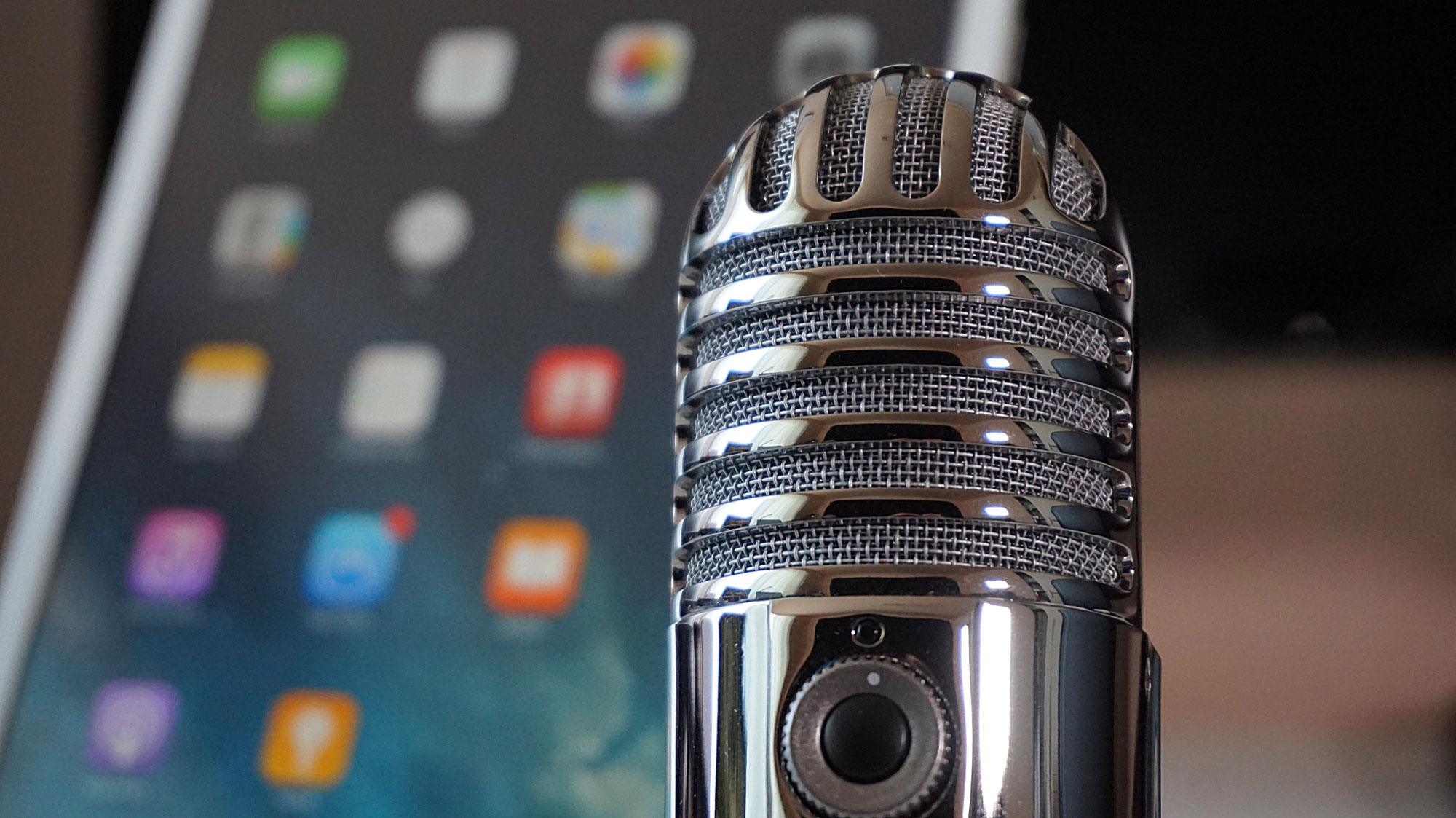
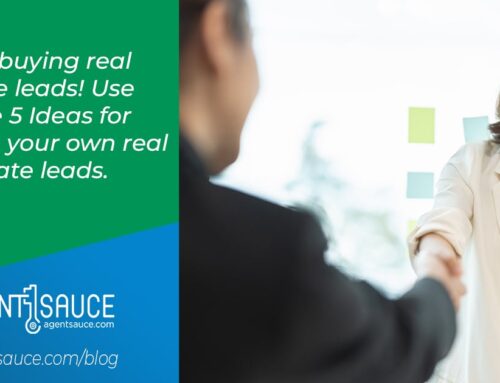
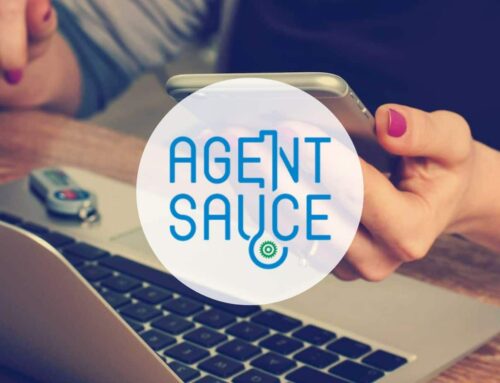
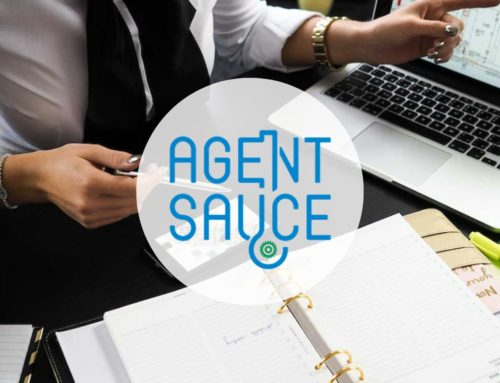
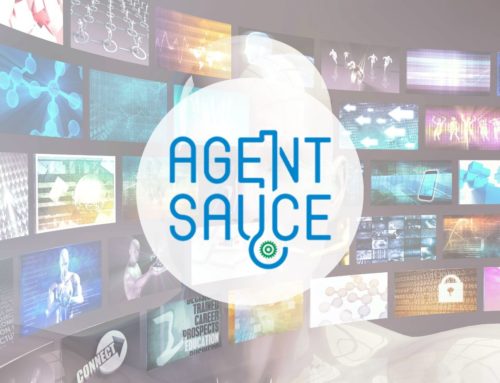
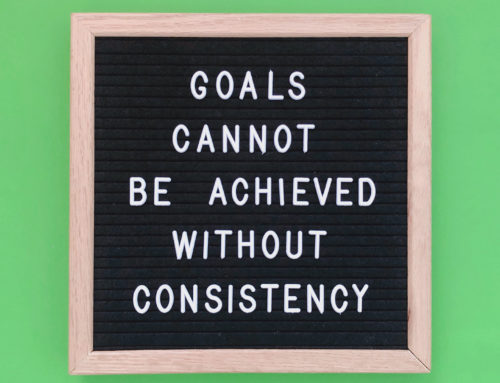

[…] Read the Real Estate Podcasting Podcast Transcript […]